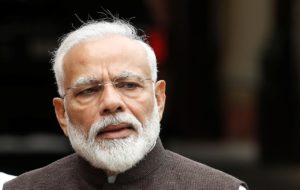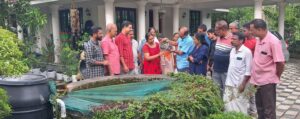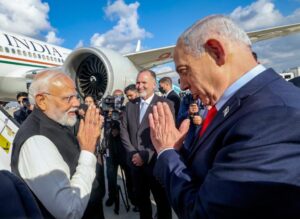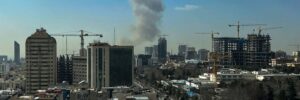Assam Leaves Nearly Two Million People Off Citizens’ List, Their Fate Remains Uncertain
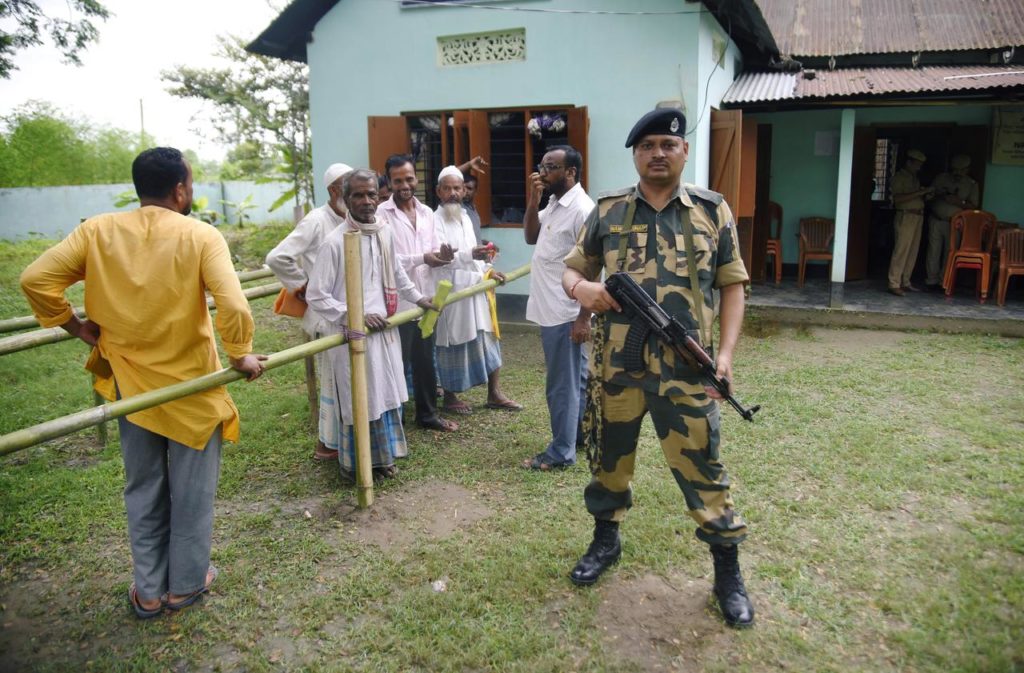
People stand in a queue to check their names on the draft list of the National Register of Citizens (NRC) outside an NRC centre in Rupohi village in Nagaon district of Assam on August 31, 2019
Nearly 2 million people have been left off a list of citizens released on Saturday in Assam, after a mammoth years-long exercise to check illegal immigration from neighbouring Muslim-majority Bangladesh.
Resentment against illegal immigrants has simmered for years in Assam, one of India’s poorest states, with residents blaming outsiders, many said to come from neighbouring Bangladesh, for stealing their jobs and land.
Officials checked documents submitted by roughly 33 million people for a draft released last year of a National Register of Citizens (NRC) in Assam, which left out more than 4 million residents of the state, many of them Hindu.
But 31.1 million people now make up the final list, with 1.9 million excluded, said Prateek Hajela, the coordinator of the state’s register.
“Any person who is not satisfied with the outcome of the claims and objections can file an appeal before the foreigners’ tribunals,” Hajela said in a statement, adding that everyone had received an adequate hearing.
Those excluded have 120 days to prove their citizenship at hundreds of regional quasi-judicial bodies known as foreigners’ tribunals. If ruled to be illegal immigrants there, they can appeal to higher courts.
“Everyone in my family is on the list but not me,” said Munwara Khatun, accompanied by two grandchildren and her husband, Sahar Ali, at a registration centre in Assam’s central district of Nagaon. “How can that be?”
Her 65-year-old spouse, a farmer, said the draft list had also omitted her, prompting them to provide authorities with documents ranging from land records to her voter identification and the Aadhaar identification number of Indian residents.
Some of the two dozen people at the centre said officials had asked them to go to court to get included on the register.
“They are saying go to court,” said car mechanic Ritesh Sutradhar, 45, who had been left out, along with his wife. “But who will pay for all that?”
“NOT 100% SATISFIED”
Critics accuse Prime Minister Narendra Modi’s ruling Hindu nationalist party of stoking sentiment against illegal immigrants, and misusing the register to target even legal Muslim citizens.
His close aide, Home Minister Amit Shah, has previously vowed to weed out illegal immigrants, calling them “termites”.
But Modi’s Bharatiya Janata Party (BJP), which also rules the state, has had to change tack in recent months, because a large number of Hindus figured on the previous list.
“Names of many Indian citizens who migrated from Bangladesh as refugees prior to 1971 have not been included in the NRC,” Assam’s Finance Minister Himanta Biswa Sarma said in a Twitter post, adding that some illegal migrants had been wrongfully added.
Another BJP lawmaker, Shiladitya Deb, said he did not expect the list to be fair. “It will not have the names of many Bengali Hindus,” he said.
The Supreme Court, which has monitored the process after it ordered preparation of the list, this month denied a request for more time from the government, which it said was needed for a partial re-verification after many Bangladeshis produced false or fabricated documents.
Separately, the BJP has been planning legislation to ease the way for non-Muslim minorities from neighbouring countries to become citizens. Some party members have publicly assured Hindus left off the list India would give them refuge.
To establish citizenship, people in Assam have had to furnish proof of residence in India going back decades, before March 24, 1971, the year in which hundreds of thousands of people fled Bangladesh, as it split off from Pakistan.
More than 1,000 people are being held in Assam’s six detention centres for illegal immigrants and the state wants to set up more centres.
Human rights activists have criticized conditions at the centres, and lawyers and activists point to problems with the functioning of the foreigners’ tribunals.

